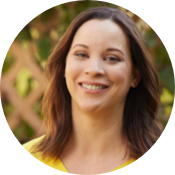Do your own research
“When my general practitioner found out I had vEDS, she immediately ordered a test that can be harmful for people with vEDS. I was supposed to go to the hospital, and go under anesthesia, and get this thing done. It didn’t sound right to me, but she was the expert, so I didn’t say anything. But luckily I had an appointment with another doctor before I was due to have the test. When she found out, she told me to cancel it. It was kind of a wake-up call. You have to do your own research and be your own advocate.”
—Greg

vEDS is different from other types of EDS
“For a while, I was on an online platform for patients with all types of Ehlers-Danlos syndromes. I saw how much the whole Ehlers-Danlos society struggles, but the medical advice is different. Testing processes are different. So I saw a lot of advice that wasn’t necessarily incorrect, but it wasn’t specific to vEDS. Everyone with EDS struggles, but each has their own struggle. And vEDS is just a little bit different with medical advice and procedures.”
—Destiny

Getting a diagnosis can be distressing—and that's okay
“I would definitely be screened for depression and anxiety. I think it’s understandable if we’re depressed. It can be so overwhelming when you go down the emotional part of this. Do what you can to take care of yourself.”
—Meg

You might see a lot of doctors
“I personally have 42 doctors. I have a neuro-ophthalmologist, a neurologist, a nephrologist, a gastroenterologist, the cardiologist, and all the surgeons. And they actually manage to not fight with each other all the time. They can actually see the bigger picture.”
—Destiny
You'll probably have to give up some things you love doing
“I’ve been lifting weights since I was 16, but I had to stop once I was diagnosed with vEDS. That was kind of a major thing. But you can’t be reckless with your body. You’re not indestructible. Blunt trauma could trigger something.”
—Greg
You need to be your own biggest advocate
“Self-advocacy is such an important thing with such a rare disease. You’re going to encounter so many people, medical and nonmedical, that have no idea what vEDS is. You have to be ready to explain what that is, and the potential risks. A lot of times it can be uncomfortable. You’re not a doctor, and you’re the one saying, ‘You need to run this test.’ You’re going to get some looks, but it’s just so important to keep pushing forward.”
—Destiny
Having vEDS might change your perspective on life
“Getting diagnosed is weird, for sure. It can kind of change your outlook on life. But it also probably had some positive effects on my personality. People have told me that I’m very present, which I try to be. I try to live life to its fullest.”
—Greg
Talking to others with vEDS can help you feel less alone
“Get in touch with people that have it, because from a coping standpoint, it’s so helpful to be able to talk to somebody, even just through social networking. It’s so comforting to talk to somebody that understands what it was like to grow up with all these weird symptoms. And somebody that has kids that can’t play sports. It’s just so helpful because you don’t feel as alone.”
—Meg
Helping others can give you hope
“One of the ways I cope with having vEDS is by helping others. If I’m going through something, nothing makes me feel better about myself than helping someone else go through whatever they’re going through, giving them the same coping skills that my friends and family gave me.”

